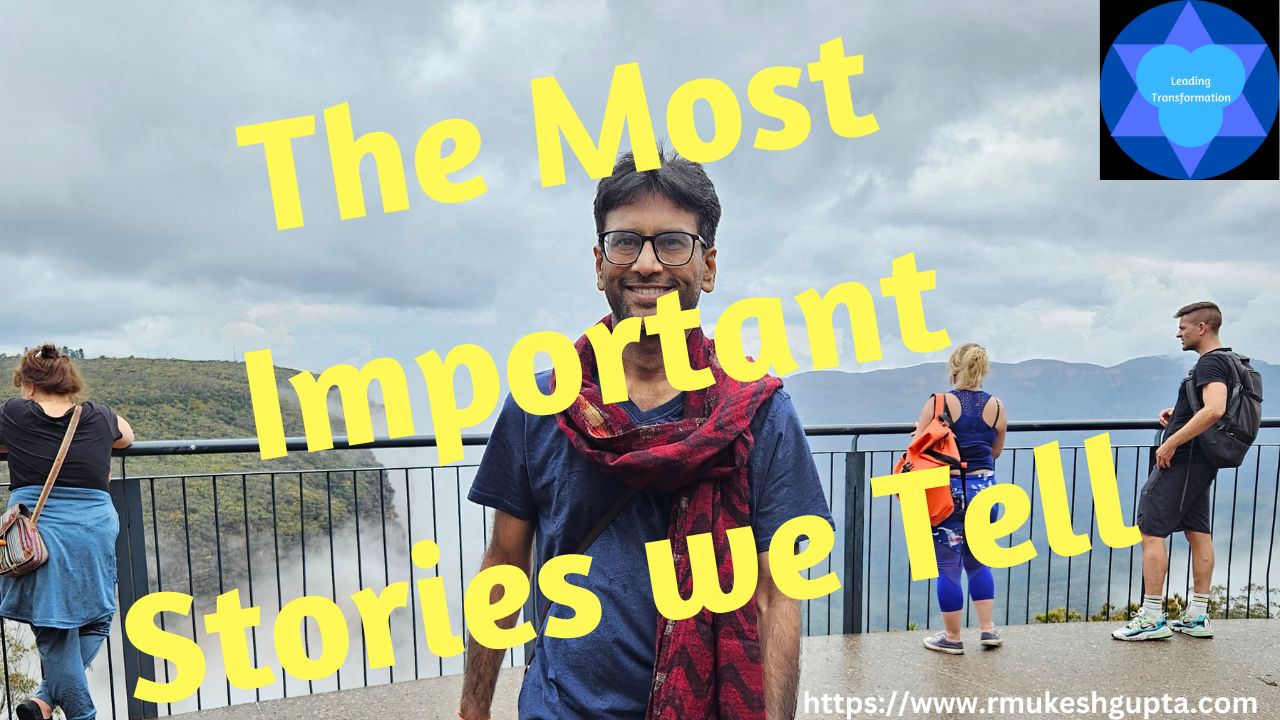
I stumbled onto an interview with Simon Sinek where he shared his thoughts on what does it take to become a great leader. You can watch the video here.
One of his core insight is that leadership requires courage, courage to do the right thing under pressure, courage to stand up to what we think is the right thing to do, courage to make the tough decisions with limited information, courage to set a direction and march forward (believing that it is the right direction), courage to give credit when things go well and take the heat when things don’t go well.
In my opinion, his thinking is only partially right. I think there is a fundamental flaw in the question that he is answering. We can have great leadership (verb) but not great leaders (noun). The nuance is that leadership is context dependent while leaders are context independent.
I know a lot of leaders, who were considered to be great leaders while they were leading but in a different context were found wanting – both in terms of skills or their leadership ability.
History is filled with leaders who are extremely successful (even considered GOAT – Greatest of all Time) in one context, are brought in to a different context (say organisation) and fail miserably enough to get fired.
We also know of a lot of leaders who were considered to be great in their time but were later found to be acting in their personal interest and not in the interest of those they were serving.
Again, different contexts different results.
So, if leaders can’t be great and only leadership can be great, what does it take for us to exhibit great leadership or be a great leader in a given context.
Leading and leading well is a complicated skill. It is still a skill, which means that we can all learn to be leaders and even aspire to becoming great leaders.
The trouble with the narrative of courage being the foundational quality of good leaders is that there is a very small margin between courage and hubris. Courage is necessary but not sufficient to be a good leader.
To exhibit great leadership we need to personify a combination of traits in any given context. Let me share some of the skills that I think we need to personify.
Self Awareness:
Any one who wants to be a good leader, first needs to know and be aware of themselves, their motivations and goals. One needs to have clarity in their thoughts about what they want to achieve and why they want to achieve. They also need to know and understand whom they want to serve and what do they want to achieve. Lack of this is a clear signal of someone not ready to be a leader yet.
Social Awareness:
We live and operate in a social world and leadership is about serving a set of people. So, it is but obvious that anyone who wants to get good at leadership needs to be able to read a room.
This is about knowing people, what motivates them and what stops them from being the best version of themselves.
This is about knowing what is being said and what is being left unsaid. It is about knowing who said it and who kept quiet.
It is about thinking and being aware of the impact of every decision made, irrespective of how simple or sophisticated it is, on the culture of the organisation and the people whom we lead.
Sense Making:
The world that we live in is constantly changing and evolving, at ever greater pace than ever. Good leadership is about looking at this evolving world and make sense of it well enough to understand the impact and the opportunity that the changing context provides.
There are many sense making frameworks that can be used for this. It is important for great leadership to set aside time for this strategically and with intent.
Mindset agility:
The ability to bring the right mindset to any given situation or mindset agility is a super power that great leadership requires. Once you have made sense of the evolving context, and knowing what we want to achieve, it is then imperative to adopt the right mindset to deal with the situation.
In my book Thrive, I talk about at least 9 different mindsets that one can adopt in a given situation – An Actors Mindset, An Athlete’s mindset, A Toddler’s mindset, A Philosophers mindset, A Yes And mindset, A Designer’s mindset, An Entrepreneur’s mindset, A Scientist’s mindset and A Systems mindset.
Each mindset activates and brings a specific kind of thinking and focus to the situation and hence it is important to bring the right mindset (or combinations) to any situation before responding to them.
Socio-Technical Skills:
These are skills like ability to make good decisions (knowing when one is lucky or when the decision was good), ability to facilitate a conversation, the ability to leverage imagination (theirs and their team members), ability to design a culture of inclusion and high performance, ability to know when and what to work so we are more effective and then focus on how to do it efficiently.
The ability to set clear and effective goals and to be able to judge people well and to be able to help them to be the best version of themselves.
Communication:
One of the things that leaders spend most of their time is communicating, either through their writing (emails, documents, etc) or by speaking (presenting, dealing with analysts, investors, conferences, all hands, 1-1 meetings, hiring, etc).
Leaders typically communicate to either inform or inspire. Knowing when you are communicating to inform and when to inspire and keeping them separate and being really good at both is also one of the fundamental qualities of good leadership.
Role Agility:
This is about how a leader reacts and engages with people they come in contact with. Knowing when to take on the right role in a given situation is what I mean by role agility.
Can you switch between the roles of a friend (cheer for someone) or a coach (helps someone figure out for themselves) or a mentor (share personal experience that could benefit someone) or a mechanic (repair something for someone – relation or situation) or midwife (partner with someone to give birth to something new) or a teacher (teach someone a new skill or how to handle something or someone by showing them and then getting them to practice until they get it right) in service to the people you are engaging with?
In conclusion:
In conclusion, I would again reiterate that leading is context dependent. Just because someone was a great leader in one context doesn’t automatically make them a great leader in all contexts. These are foundational skills which build on top of each other and in that sequence.
I believe leaders are not great, however their leadership could be great!




